UK weather: Storm to batter Britain this weekend
Blustery showers will bring spell of warm, dry weather to an end
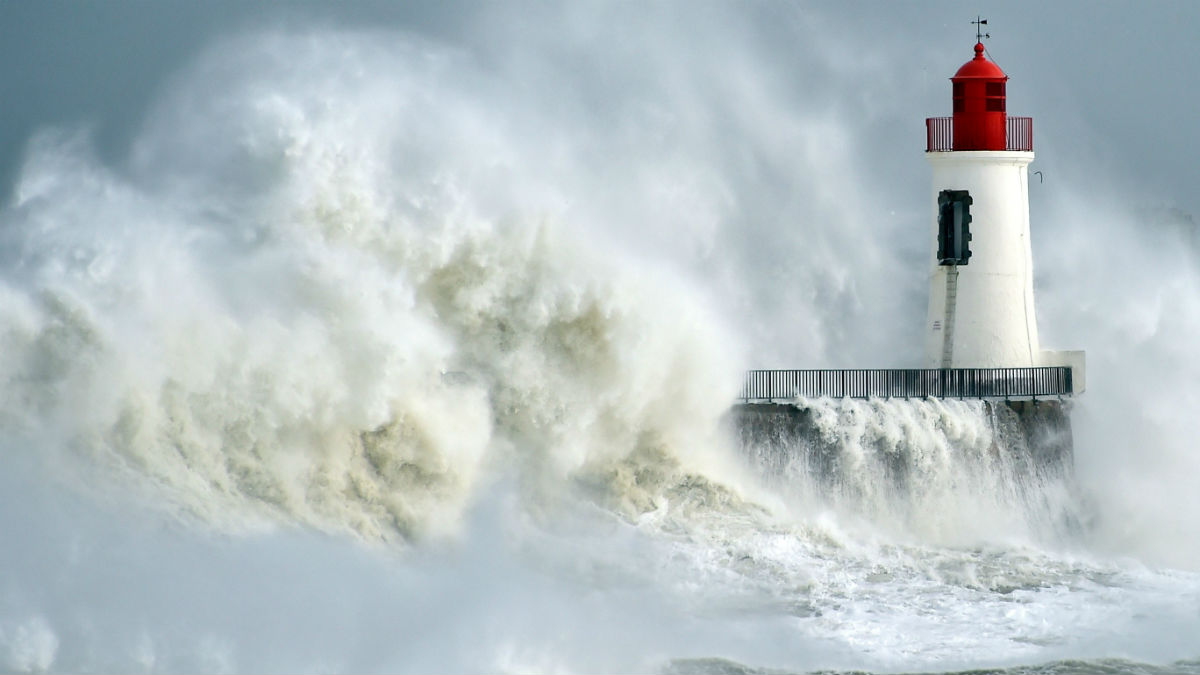
A free daily email with the biggest news stories of the day – and the best features from TheWeek.com
You are now subscribed
Your newsletter sign-up was successful
UK weather: Storm Jake to bring snow and gales to Britain
2 March
Snow, ice and wind are expected to sweep across the UK as Storm Jake arrives, just as Brits were hoping for the first signs of spring.
The Met Office has issued yellow "be aware" warnings for the poor weather, with forecasters saying icy roads could lead to travel disruption throughout the week.
The Week
Escape your echo chamber. Get the facts behind the news, plus analysis from multiple perspectives.

Sign up for The Week's Free Newsletters
From our morning news briefing to a weekly Good News Newsletter, get the best of The Week delivered directly to your inbox.
From our morning news briefing to a weekly Good News Newsletter, get the best of The Week delivered directly to your inbox.
As much as four inches of snow could fall on high ground, while in south-west Wales and south-west England, isolated gusts of 70mph are possible around exposed coasts, with speeds of 50mph inland.
After relatively balmy temperatures as high as 11C, areas including Manchester, Newcastle, Scarborough and Leeds can expect to see a disappointing drop to 5C.
Highways England warned drivers to expect disruption as snow is forecast to settle in Cheshire, Nottinghamshire and Derbyshire.
"With the timing of these wintry showers coming across, you'd imagine there could be some disruption mainly to morning rush hour around those areas," Met Office forecaster Alex Burkill told the Daily Telegraph.
A free daily email with the biggest news stories of the day – and the best features from TheWeek.com
"Even if the snowfall's not that great, we could see icy surfaces if surfaces are left untreated so drivers should be aware that there could be some disruption to travel."
He added it would be "noticeably colder" today.
The storm follows what is set to be the warmest winter on record. The Met Office is due to process the final set of winter temperature readings this week, with 2015-16 expected to be the warmest in some parts since the 17th century.
UK weather: London set for snow as Arctic freeze continues
16 February
Britain faces another week of wintry weather, with Arctic air keeping temperatures below freezing in the north of the country.
"Into Wednesday, we are expecting another very cold day with some patchy snow on low levels in central and eastern parts of the UK," said Lindsay Mears of the Met Office. "More cold air will move in, bringing rain, sleet and strong winds, possibly turning to snow over lower levels as far as London."
She added: "It's going to be pretty cold for the rest of the week with some strong winds on Tuesday and Wednesday, and with the wind-chill factor, it will feel very cold."
Temperatures could plunge as low as -1C in London during the early hours of Thursday morning, says the Daily Telegraph, raising the prospect of snow settling and causing disruption to morning commuters.
Temperatures should begin to lift by the weekend, however, with a positively balmy high of 8C forecast in parts of the south-east on Friday.
Despite the Arctic conditions, the weather has remained pretty dry - although that, too, is set to change. Bookmaker Coral told the Daily Mail it has cut the odds on it being the wettest February on record from 4/6 to 1/2.
"The gamble on this month being the wettest February we have ever seen in the UK has picked up pace over the last week and following another flurry of bets, the odds now suggest it is very likely that we will be in for a record month of rainfall," said spokesman John Hill.
Coral is also offering odds of 2/1 on the wind-speed record of 173mph being broken.
Valentine's Day saw the coldest temperature for four years being recorded when the mercury plunged to - 14.1C in the Scottish Highlands. Aberdeen, meanwhile, has consistently felt temperatures colder than both Ukraine and Iceland this week.
UK weather: snow on the way this weekend
11 February
Parts of the UK can expect a snowy Valentine's Day this year, with the country set for temperatures as low as -10C in some areas.
Colder temperatures are predicted for the rest of the week, with sleet and snowfall likely in some parts of the north overnight, while the rest of the country will face the prospect of icy showers and freezing fog.
"The cold snap is the result of a twist in the jet stream caused by a clash between a cold easterly flow from Scandinavia and milder Atlantic air to the southwest," says The Times. However, in most of the affected areas, the snowfall is expected to be light and to clear quickly.
The Met Office said it expected to see wintry showers across higher ground north of the Pennines, where temperatures may be below freezing.
"Thursday will be more misty and foggy across central and southern England and Wales," said Lindsay Mears. "There's a more uncertain picture on Friday and Saturday. We may see some snowfall, as opposed to wintry showers, as far south as Derby."
Snow is more likely to brush over the country at the weekend, Mears added, but it will be a light coating if it comes.
Netweather predicted -10C in Scotland and the north, with lows of -2C further south.
The cold spell follows Storm Imogen, which buffeted British coastal areas and resulted in thousands being left without power.
James Madden, a forecaster for Exacta Weather, told the Daily Mirror the cold weather could hold out through the rest of this month.
He said: "The colder and wintry theme will begin to take more of a stronghold into the second week of February as the UK becomes locked in an icy and wintry grip."
Storm Imogen: one man missing and several people injured
8 February
Storm Imogen continues to batter Britain's southern coast, leaving thousands without power and causing widespread travel disruption.
The ninth storm of winter has brought torrential rain and winds of up to 93mph to south-west England, south and mid-Wales and the Midlands. More than 12,000 homes have been left without power.
A search operation is currently under way for an RSPCA inspector who has been missing since rescuing sea birds on the coast of Penzance yesterday, according to the Press Association.
A number of injuries have also been reported, including two young children who were airlifted to hospital after a stone garden wall collapsed on them in the Worcestershire village of Bretforton.
A man in his seventies also suffered a broken leg when a wall fell on him in Bognor Regis, West Sussex. His dog was killed in the accident.
The Met Office has issued an amber "be prepared" wind warning and there are nearly 60 flood warnings in place for the south of England and Wales.
"The wind will be combined with some hefty showers with some thunder along the south coast," Met Office forecaster Craig Snell told the BBC.
"People should be prepared for disruption to travel on roads, rail, bridges and ferries and we could see possible damage to structures and downed trees risk affecting power."
Transport links have been severely disrupted across the south coast. Gatwick Express has suspended all services, while Southern, Great Western and South West Trains have imposed speed restrictions and suffered numerous delays and cancellations.
Ferry services between Dover and Calais, Liverpool and Dublin and Newhaven and Dieppe have also been cancelled or delayed, while flights may be subject to delay at Gatwick Airport.
Drivers, especially those in high-sided vehicles, on motorcycles or with caravans, have been told to take extra care when travelling on roads and bridges.
"If you do have to make a journey by road, be prepared - plan your journey in advance and check the latest weather conditions along your route," said Gary Webb, from Highways England.
Storm Gertrude hits Britain with 90mph winds
29 January 2015
Scotland and other parts of the UK are suffering the effects of Storm Gertrude today. The seventh named storm of the season has brought 90mph winds, left homes and businesses without power and disrupted transport.
After initially blasting Ireland, the focus then shifted to Scotland, while winds across the north of England are expected to increase this afternoon.
The highest wind speed reached at low levels by Gertrude so far has been 91mph in Uist in the Outer Hebrides, although 132mph was recorded at the summit of Cairngorm.
Schools have been closed across Scotland and the Forth Road, Tay Road and Kessock bridges were all closed to traffic this morning, with others closed to high-sided vehicles. Several lorries have been blown over in the gales.
A landslip on the A82 near Letterfinlay, in the Highlands, has created a 150-mile diversion for travellers between Fort William and Inverness.
The wind has also caused disruption to the ferry and train service. A P&O ferry due to arrive in Hull from Rotterdam at 7.30am was sent back out to sea and will try to dock again at 3pm.
According to Sky News, some 8,500 homes in Scotland - and thousands more in Ireland - are without electricity. Engineers are working to reconnect supplies in Aberdeenshire, Perthshire, the Western Isles, Skye and Oban.
The Met Office has issued a rare red "take action" warning for Orkney and Shetland, where winds could top 100mph in inhabited areas, says the Daily Mail.
Amber "be prepared" warnings are in place for Northern Ireland, Scotland and north-west and north-east England, with forecasts of high winds, heavy rain and snow.
Yellow "be aware" warnings are in place for much of the UK, where there could be up to four inches of rain, snow and ice. Winds could reach 80mph in Yorkshire later today and 65mph in the north-east.
UK weather: US blizzard that killed 19 on course for Britain
25 January
The record-breaking blizzard that covered the east coast of the US in snow, bringing New York and Washington to a standstill and killing 19 people, is heading for the UK, meteorologists have warned.
Storm Jonas wrought havoc across the eastern seaboard over the weekend, with up to 85 million people affected by hurricane-force winds, flooding and as much as three feet of snow in some areas.
A state of emergency was declared in 11 states and New York's governor Andrew Cuomo introduced a road traffic ban to deal with what he described as "one of the worst [blizzards] in the City's history".
New York mayor Bill De Blasio said he had "seriously considered" a full travel ban, while the city was also put on alert for coastal flooding after 21ft waves broke sea barriers in some areas. More than 8,000 flights were cancelled over the weekend and more services are expected to be cut today.
Storm Jonas would be "one of those generational events, where your parents talk about how bad it was", said Ryan Maue, a meteorologist for WeatherBell Analytics.
As well as the 19 confirmed deaths, including that of a four-year-old boy in North Carolina, there have been reports of people stranded in cars for up to a day and mass power outages.
The storm is reportedly now making its way across the Atlantic and is expected to hit the UK some time today, although it will bring rain rather than snow, says the Daily Telegraph, "triggering fears of more flooding".
The Met Office has issued severe weather warnings for much of Wales, north-west England and Scotland.
"Many parts of the warning area could see up to 4ins of rain," says Sky News, "while in the northwest, south-west Scotland and north Wales as much as 8ins of rain could fall."
Britain braced for freezing temperatures
14 January
The UK is expected to see temperatures as low as - 15C this weekend, the coldest in four years, as the balmy winter departs, say forecasters.
Weather warnings have been issued across the whole of the country and especially for the Scottish Borders and northern England, where snow began falling last night.
Birmingham and Lincolnshire could be hit this evening, while Saturday is predicted to be the coldest night in four years, with temperatures of - 15C expected in Scotland.
The last time the temperature dipped so low was in February 2012, when -15.6C was recorded in Holbeach, Lincolnshire.
Amber weather warnings for snow are in place in Dumfries, Galloway and Lothian and Borders, with up to 2.5ins of snow expected at lower ground level and almost 4ins at higher ground. The warning covers Orkney and Shetland as well, with 2-4ins expected there.
The weather was also a factor in several minor traffic incidents in the north of the country on Wednesday night. "Motorists should drive to the conditions throughout the day due to the impact of snow, particularly on higher and rural routes, and the low temperatures forecast throughout the day," Chief Inspector Andy McLean of the Scottish Borders told the BBC.
Temperatures are expected to be warmer in urban areas, varying between -5C and zero, while London might be spared the chill altogether. Daytime will bring another respite from the cold, with bright skies and "crisp weather conditions", says Met Office meteorologist Emma Sharples.
December 2015 was the wettest and the warmest on record, with an average temperature of 7.9C, but that is decidedly over, with Sharples warning it will "remain cold through into the start of next week".
The elderly have been advised to keep warm and have a flu jab if necessary, an especially important warning with winter deaths said to be at an all-time-high. According to the Office of National Statistics, 43,900 excess winter deaths were recorded in 2014/2015, with 13,100 of these due to respiratory disease.
UK weather: homes evacuated after River Don bursts its banks
8 January
Several towns in Aberdeenshire have been evacuated and their residents moved to higher ground after the River Don burst its banks following days of heavy rain.
Many homes and local infrastructure, including Aberdeen airport, have been damaged by the rising waters.
Dozens of residents, including several elderly people, have been taken by ambulance to safety in the village of Port Elphinstone, Inverurie, reports BBC correspondent Kevin Keane.
Police have advised people not to attempt to travel by car following reports of several motorists being caught in the floodwaters and requiring rescue.
However, evacuation and rescue efforts are being hampered by the freezing conditions in eastern Scotland, leaving some residents stranded.
The Scottish Environment Protection Agency (Sepa) has issued two severe flood warnings. Further flooding could lie ahead, with "very high" rain totals of up to 80mm expected over the next 24 hours in the north-east of Scotland, said the agency.
Local Shelley Douglas, from the town of Kintore, said the community spirit was strong. "It just hasn't let up. It finally stopped raining a couple of hours ago but the community has pulled together," she told BBC Scotland.
"They have been absolutely amazing, getting sandbags and even using pillowcases as sandbags, not just in Kintore, but from Kemnay and Inverurie and surrounding areas as well."
Meanwhile, temperatures are expected to plummet by the middle of next week, with sleet and snow looking increasingly likely across the north of the UK.
"There is also a risk of some sleet and snow in the south, although many areas here are likely to be dry with some sunshine for much of the time," said the Met Office.
December was 'wettest months since UK records began'
05 January
December was the wettest month for the UK in more than a century, according to provisional figures from the Met Office. It was also the warmest December since records began in 1910 - and the wettest of any calendar month on record.Britain had almost double the amount of rain normally expected for the month with 230mm - more than nine inches - falling on average across the country. However, there were also spring-like warmth, which reached 13.7C (46F) in the south of England. Across the month, "temperatures averaged 7.9C (46.2F), which is 4.1C (56.7F) above the long-term average," reports Sky News.England had virtually no frost during the month and, in the UK overall, there were fewer than three days of frost. December would normally expect around 11 frosty days.The month of downpours capped a rainy 2015, which was the sixth wettest year on record, with unprecedented amounts of rain pouring over storm-hit Scotland, Wales and the north west of England.For communities struggling with floods, there is little sign of respite from the downpours.Yellow "be aware" warnings remain in force for parts of Wales, the southwest, southeast and northeast of England, as well as London and Northern Ireland. There is a Met Office amber warning for heavy rain for Central, Tayside and Fife in Scotland.The Environment Agency has 23 flood warnings and 140 flood alerts in place across England and Wales.
Meanwhile, the BBC's long-term forecast predicts "wet and windy" weather this week, with "no real sign of any significant change" until 18 January at the earliest.
UK weather: forecasters say 2016 will be hottest year yet
18 December
As the UK is set for its warmest December in nearly 70 years, forecasters have announced that 2016 is set to be the hottest year yet.
The Met Office says that the El Nino weather trend will combine with man-made global warming to raise the global temperature to 0.84C above the long-term average.
That would be significantly higher than the 0.72C increase predicted for 2015, which is on track to break 2014's record rise of 0.61C.
Adam Scaife, head of long-range prediction at the Met Office, said that the new forecast suggests that "by the end of 2016 we will have seen three record or near-record years in a row for global temperatures".
But looking even further ahead, this trend is predicted to end in 2017 when the El Nino effect – a naturally occurring weather episode that sees the warm waters of the central Pacific expand – is due to end.
Meanwhile, UK bookmakers are offering 2/1 odds on the UK experiencing the hottest Christmas Day on record. The top temperature recorded for 25 December was 15.6C, recorded in Devon in 1920.
In London, temperatures hit 16C on Thursday, the average for June in the city – and it is expected to get even warmer. Daffodils, a flower associated with spring rather than winter, are blooming in the capital, and some Londoners even wore shorts yesterday, reports The Independent.
However, a side effect of all this mild weather is heavy rain, prompting the Met Office to issue severe-weather warnings for Friday in Scotland and much of the west on Saturday.
UK weather: government issues Saharan dust warning
16 December
A Saharan sandstorm could sweep through the south of England tomorrow, the government has warned.
With pollution levels soaring in the south, people with respiratory difficulties and health problems have been advised by the Department for Environment, Food and Rural Affairs (Defra) to avoid physical exertion outdoors.
Should air pollution levels reach 'high' on the scale, people could experience sore throats, itchy eyes and a cough.
Defra said: "There is a risk of moderate or high levels of air pollution across parts of southern and eastern England on Thursday due to Saharan dust, although large uncertainties remain as dust has yet to be observed lifting into the atmosphere from the likely source region in West Africa."
Andrew Goudie, Emeritus professor in geography at Oxford University, told the Daily Mail that such dust would usually be blown across the Atlantic and dumped in South America, but drier conditions have led to both increased soil erosion and more powerful winds whipping it over to the UK.
"It's a bit unusual for the dust to come our way in winter, though it does from time to time," he added.
"March is perhaps the most common month for Saharan dust to dirty our cars. I've done some work on this and there's definitely been an upward trend since the 1950s."
While the South braces for African sand, the North is preparing for a more familiar winter phenomenon: heavy rain. The Met Office has issued rain warnings for Cumbria, Lancashire and Yorkshire, and there is a chance of further flooding.
UK weather: Brits braced for snow as winter arrives
20 November
After an unseasonably warm autumn, the Met Office is warning that temperatures will fall by as much as 10C this weekend. A band of snow and sleet is moving south across the UK, with high winds causing blizzard conditions.
Yellow 'be aware' weather warnings for snow and high winds are in force from 4pm for parts of Scotland and the north-east of England, though snow may fall further south, particularly towards the east of the country.
The snow will fall on the hills and moors at first but will affect lower levels from tonight, forecasters say. There may be as much as 4cm in some residential areas, says the Daily Telegraph, with 10cm on higher ground.
Snow is not expected to lie in London and the rest of the south, but much of central and southern Britain will feel colder from this evening as icy winds of up to 70mph hit.
Motorists have been warned of difficult driving conditions and possible disruption to travel. Many councils may have to consider gritting the roads tonight, particularly in the north of England and Scotland.
Frank Saunders, of the Met Office, said: "With strong winds and some snow forecast for this weekend there is the likelihood of some difficult driving conditions and disruption to transport.
"There remains some uncertainty regarding the strength of the wind and snow amounts and so if you have travel plans over the weekend we'd advise that you keep an eye on the warnings for your area."
The cold snap is expected to last at least for the weekend, the Telegraph says, but a change to westerly winds from Sunday evening will bring more clement weather at the beginning of next week.
Sky News says the first half of this month has been the second-warmest on record. The Met Office says this weekend's forecast weather is more normal for late November, when snow is not unusual.
UK weather: Met Office report warns of months of storms
10 November
Britain will be battening down the hatches for three months of storms, with predictions of strong wind and rain bringing the unusually clement November weather to a crashing end.
The Sun claims to have seen a Met Office report, intended for the eyes of local councils, transport heads and emergency services chiefs, warning of up to 1.5ft of rainfall, accompanied by gale force winds. The forecast has sparked fears of a repeat of the storms and flooding which left 17 people dead in 2013.
The newspaper quotes the report as saying: "The risk of spells of windy or stormy weather is greater than usual. There is a clear shift towards above-average rainfall."
The report predicts that this year's El Nino could be the biggest on record, leading to an increased risk of flooding. El Nino is a global weather phenomenon that occurs when the central and eastern Pacific waters warm. It affects weather patterns all over the world, from Indian monsoons to rainfall in Brazil.
Jeff Knight, a climate modeller working for the Met Office, explained the possible effects to The Independent: "In Britain, the impact of El Nino is nowhere near as marked as in other parts of the world. But it does tip the balance a little bit more in favour of wet and windy weather. It makes it more probable."
The north of England is braced to take the brunt of the bad weather, with three flood warnings and 23 flood alerts currently issued in the area by the Met Office. High waves whipped up by gales might also cause disruptions to ferry services and bridge crossings.
In addition to its predictions of wet and windy conditions, the Met Office report obtained by The Sun also anticipates that the current balmy temperatures could soon plummet, falling as low as -14C early next year.
-
 ‘Poor time management isn’t just an inconvenience’
‘Poor time management isn’t just an inconvenience’Instant Opinion Opinion, comment and editorials of the day
-
 Bad Bunny’s Super Bowl: A win for unity
Bad Bunny’s Super Bowl: A win for unityFeature The global superstar's halftime show was a celebration for everyone to enjoy
-
 Book reviews: ‘Bonfire of the Murdochs’ and ‘The Typewriter and the Guillotine’
Book reviews: ‘Bonfire of the Murdochs’ and ‘The Typewriter and the Guillotine’Feature New insights into the Murdoch family’s turmoil and a renowned journalist’s time in pre-World War II Paris
-
 Can the UK take any more rain?
Can the UK take any more rain?Today’s Big Question An Atlantic jet stream is ‘stuck’ over British skies, leading to ‘biblical’ downpours and more than 40 consecutive days of rain in some areas
-
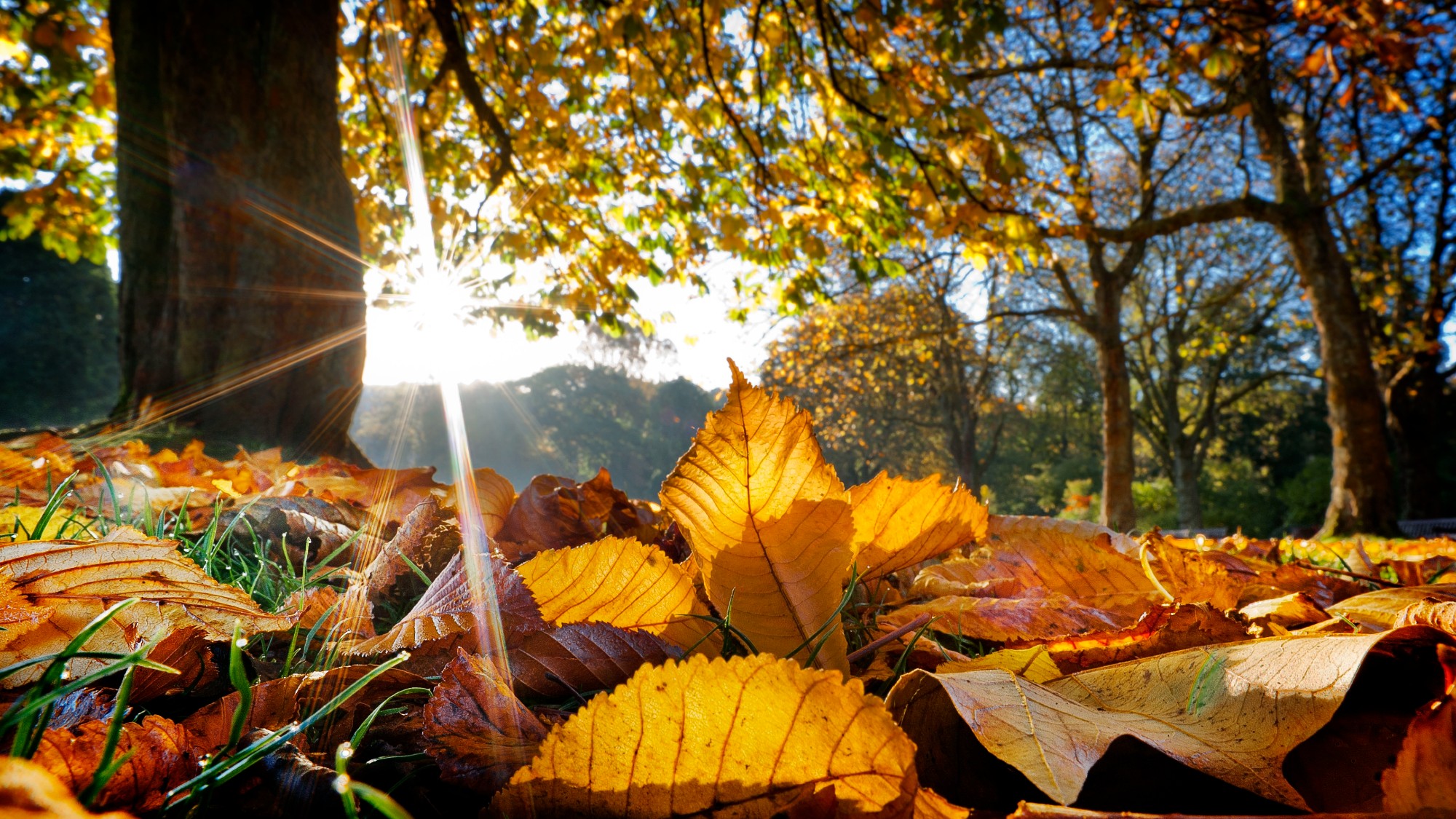 When does autumn begin?
When does autumn begin?The Explainer The UK is experiencing a 'false autumn', as climate change shifts seasonal weather patterns
-
 Why the weather keeps getting 'stuck'
Why the weather keeps getting 'stuck'In the Spotlight Record hot and dry spring caused by 'blocked' area of high pressure above the UK
-
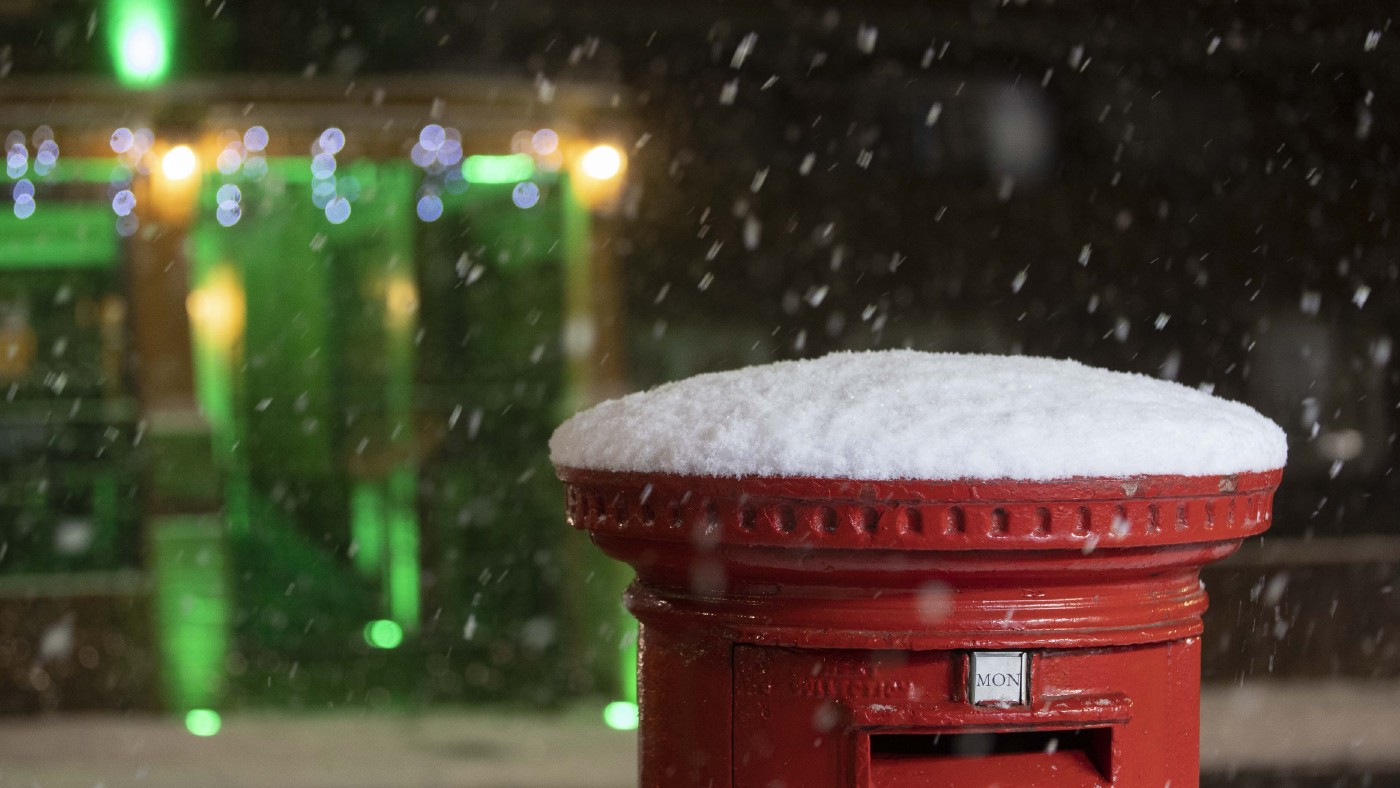 How cold does it have to be to snow?
How cold does it have to be to snow?feature Different ground and air temperatures lead to rain, sleet or snow
-
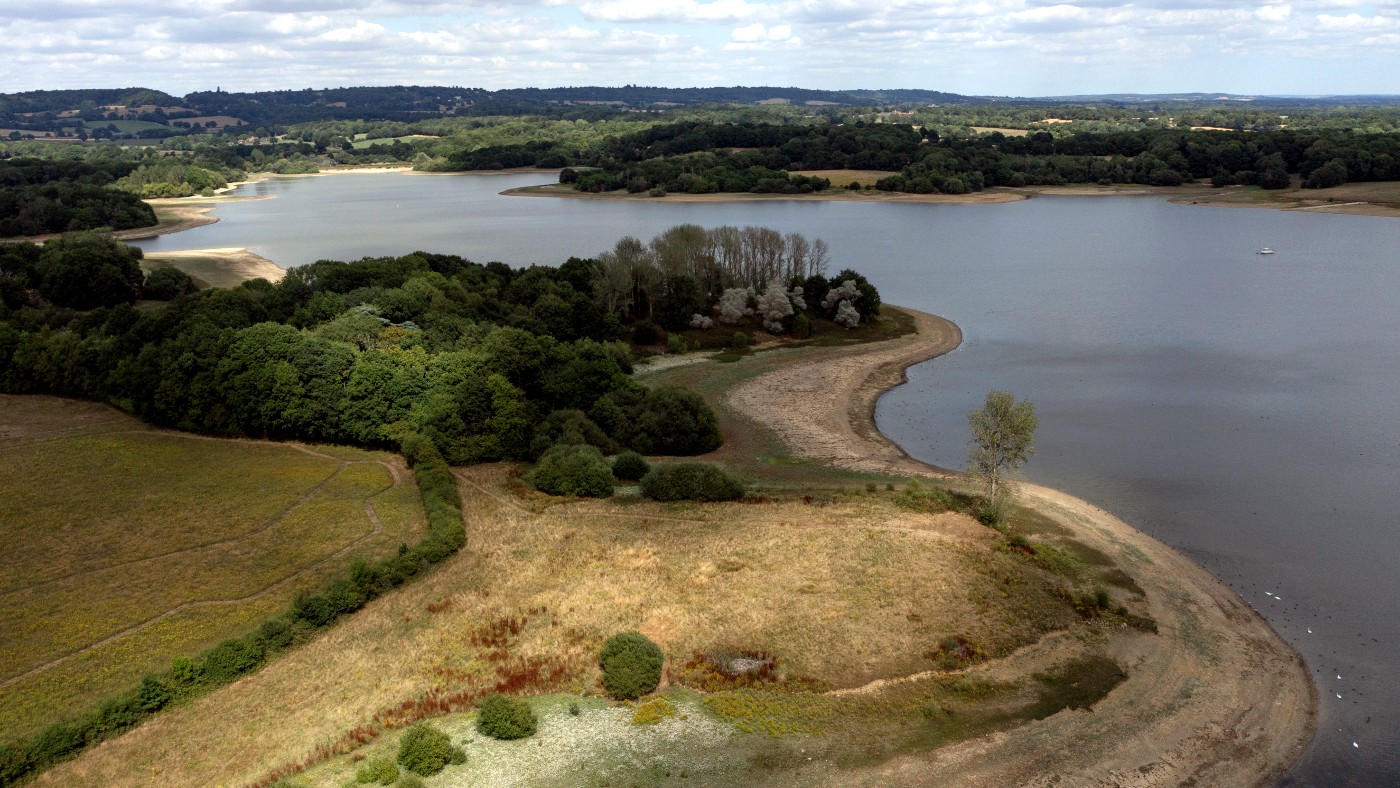 Britain is getting wetter – so why are there hosepipe bans?
Britain is getting wetter – so why are there hosepipe bans?Under the Radar Met Office data shows we have enough water, the problems lie in timing
-
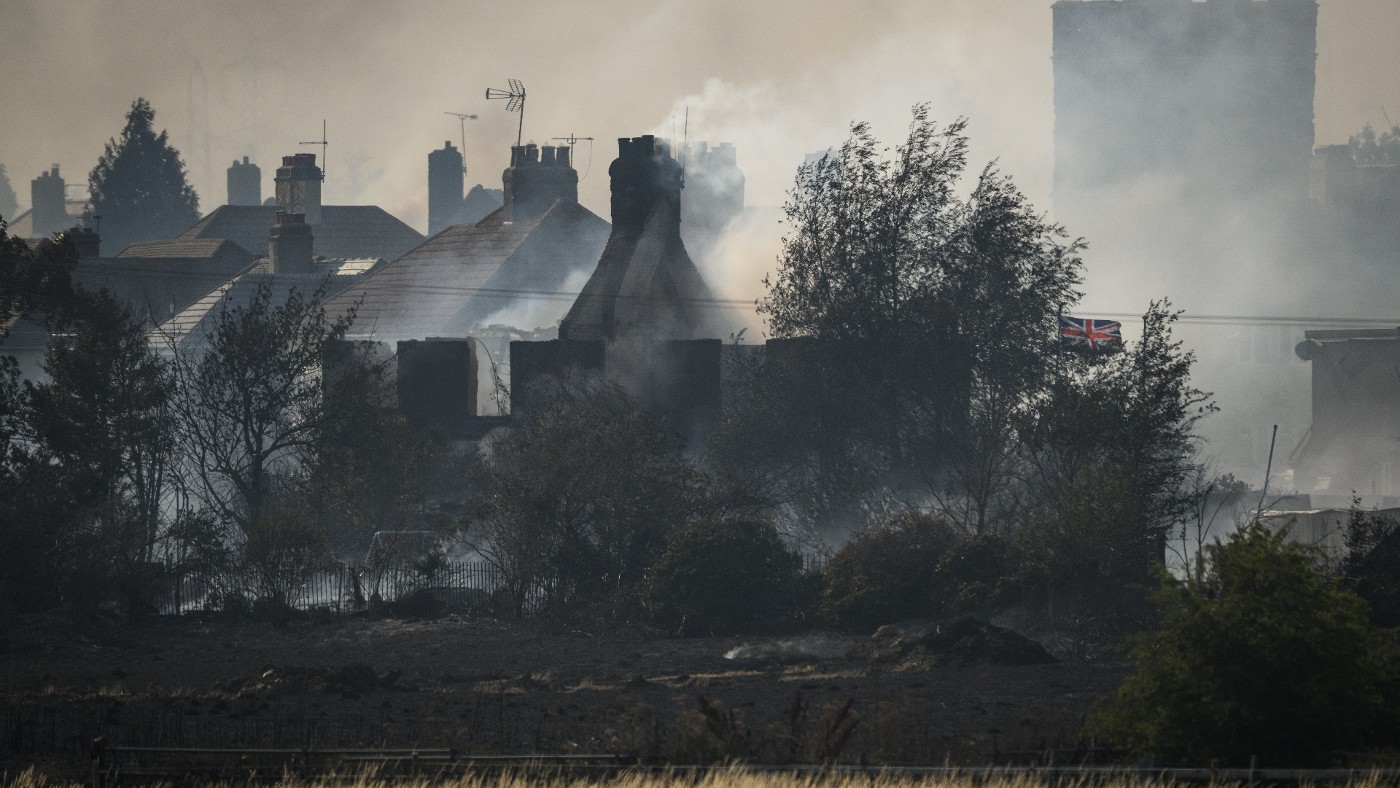 When will the next record-breaking heatwave hit Britain?
When will the next record-breaking heatwave hit Britain?Today's Big Question Expert warns that yesterday’s high temperatures are ‘just the beginning’
-
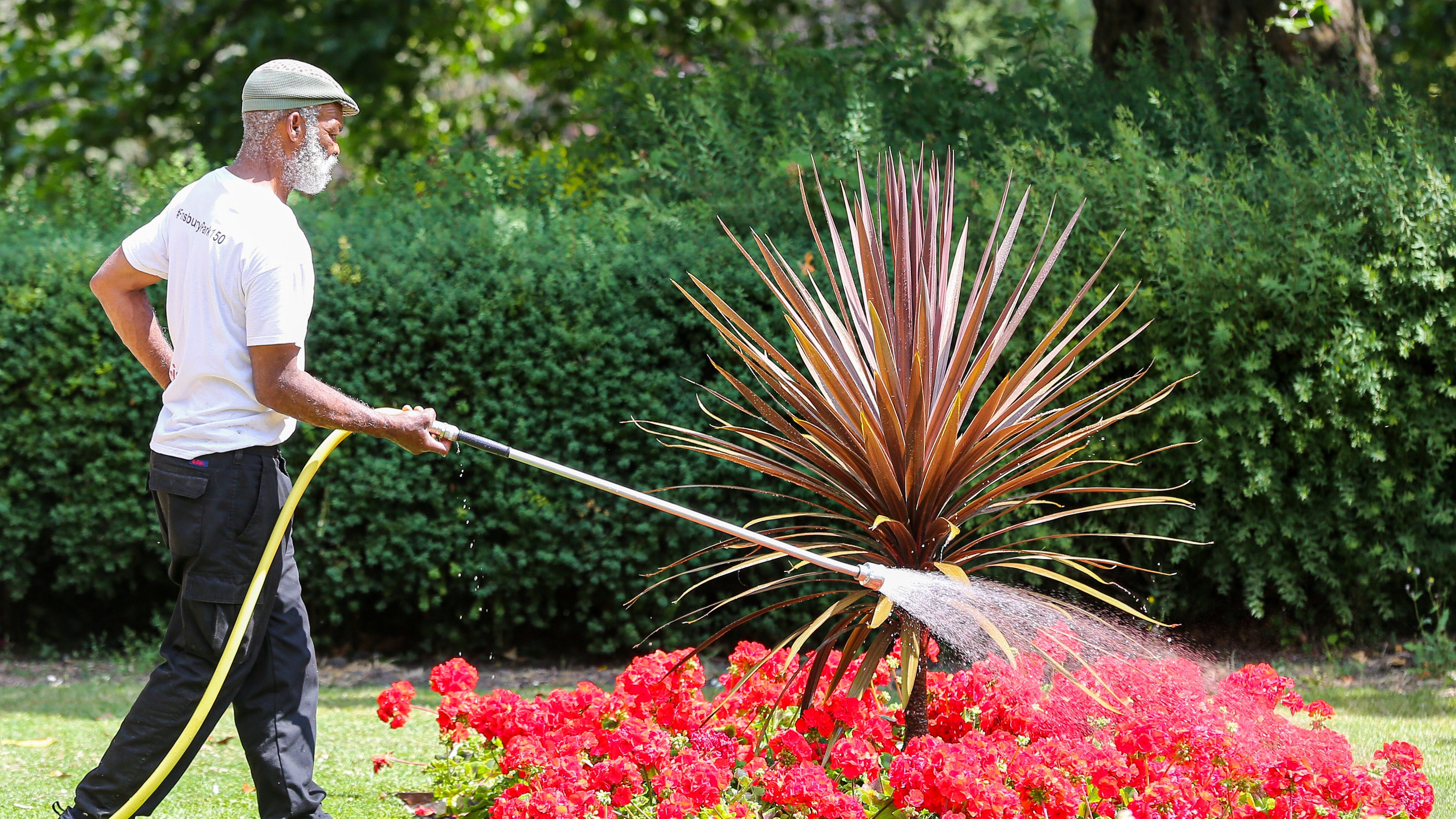 Is the UK facing a water shortage?
Is the UK facing a water shortage?Today's Big Question Restrictions may be introduced later in the summer if there is below-average rainfall
-
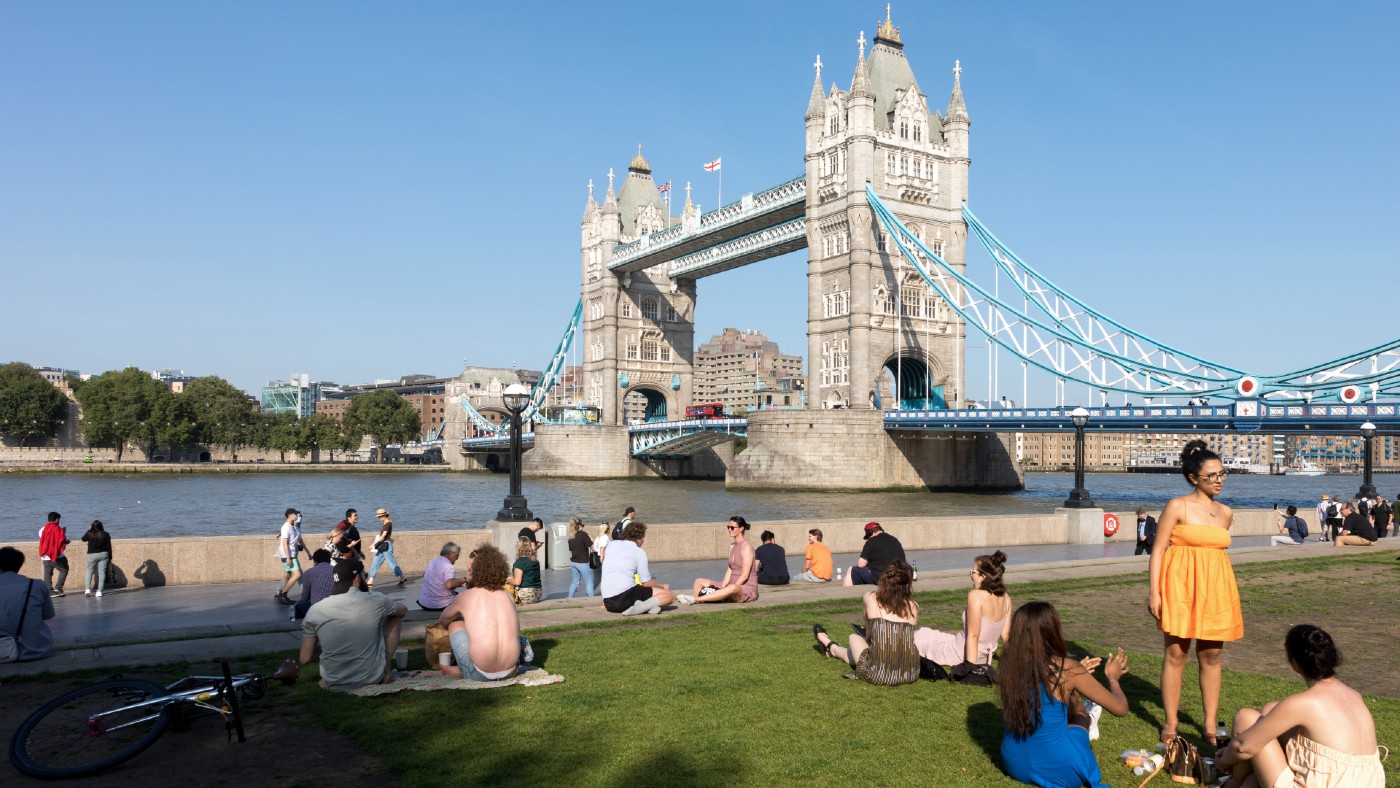 Why do heatwaves in the UK feel hotter than abroad?
Why do heatwaves in the UK feel hotter than abroad?In the Spotlight While the heat can be welcome when you’re on holiday, it can feel unbearable at home